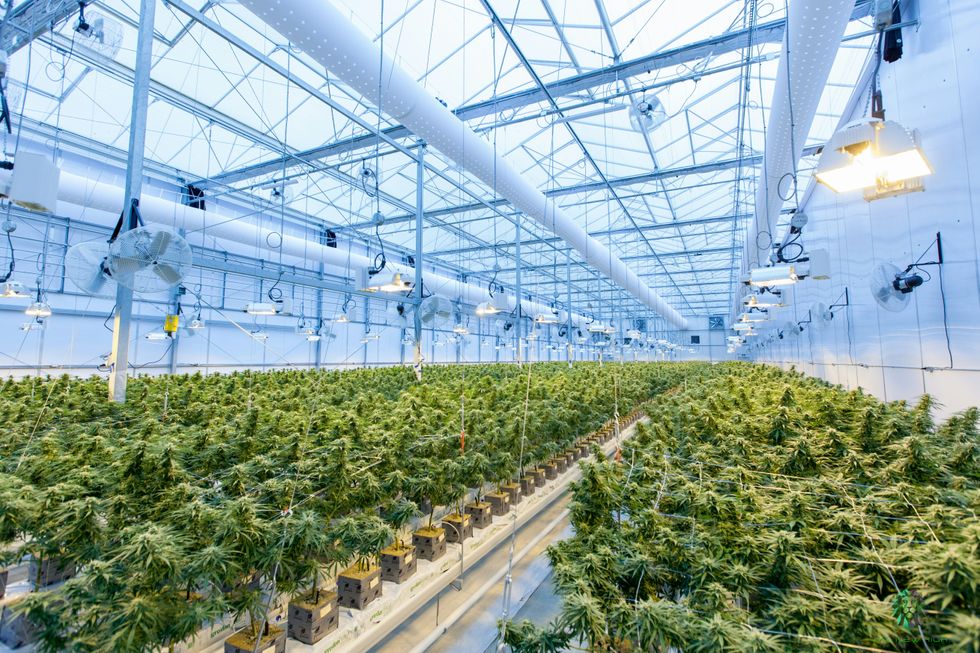New York’s governor, Kathy Hochul, has recently signed groundbreaking legislation providing much-needed tax relief to New York City marijuana businesses, a significant move in a landscape where federal deductions under Internal Revenue Service (IRS) code 280E are currently off-limits. This decisive action comes after a five-month wait following the Senate and Assembly’s approval of the proposal, underscoring the state’s commitment to supporting the burgeoning cannabis industry, according to Marijuana Moment.
The legislation represents a pivotal step in addressing the unique tax challenges faced by cannabis businesses. Historically, these entities have been hamstrung by federal policies that severely limit their ability to make standard business deductions. The new law seeks to bridge this gap at the city level, following a similar state-level initiative included in last year's separate budget bill. However, New York City’s distinct tax laws remained unaffected by the earlier state-level change, necessitating this targeted intervention.
Specifically, the new measure allows cannabis businesses to deduct expenses related to the sale, distribution, or production of adult-use cannabis products or medical cannabis for the unincorporated business tax (UBT), the general corporation tax (GCT), and the corporate tax of 2015, commonly referred to as the business corporation tax (BCT). This change aligns the city’s tax policies more closely with New York State law, which recognizes and supports these businesses akin to any other legitimate enterprise.
In practical terms, the city’s tax code will be amended to permit deductions equivalent to those denied under section 280E of the federal internal revenue code. This adjustment acknowledges the unique status of cannabis-related businesses, which, while unable to claim federal tax deductions, are nonetheless legal and encouraged under New York law. The bill’s memo highlights this rationale, emphasizing the need for city business taxes to foster these activities.
This legislative reform, backed by New York City Mayor Eric Adams, reflects a broader trend across various states. As federal marijuana reform continues to stall in Congress, leaving state-licensed cannabis businesses facing disproportionately high federal tax rates, states are stepping up. New York joins the ranks of Pennsylvania, Maine, Illinois, Connecticut, and New Jersey, all of which have recently enacted similar measures to provide state-level tax relief to cannabis businesses. These initiatives represent a patchwork of solutions to a federal problem, with states increasingly acting independently to support their legal cannabis industries.
In May, Rep. Earl Blumenauer (D-OR) reintroduced a bill aimed at amending the IRS code, a move that would enable state-legal marijuana businesses to take federal tax deductions like those available to other industries. Blumenauer's efforts highlight the growing recognition of the incongruities in current tax laws and the need for federal action. However, until such federal reforms are enacted, the cannabis industry continues to navigate a complex and often contradictory tax landscape.
The IRS has offered limited guidance on the application of Section 280E, a gap that was somewhat addressed in a 2020 update. This update clarified that cannabis businesses, while restricted from standard deductions, can reduce their gross receipts by properly calculated costs of goods sold to determine gross income. This guidance came in response to a Treasury Department internal watchdog report criticizing the IRS for insufficiently advising marijuana industry taxpayers about compliance with federal tax laws.
An overarching resolution to the industry’s 280E problem could emerge if the Drug Enforcement Administration (DEA) heeds the recommendation of the U.S. Department of Health and Human Services (HHS) to reclassify marijuana from Schedule I to Schedule III of the Controlled Substances Act (CSA). Such a reclassification would not only address tax issues but also herald a significant shift in the federal government's stance on cannabis.
In conclusion, New York City's recent legislation marks a vital step in addressing the disproportionate tax burden on cannabis businesses. It reflects a growing awareness and acceptance of the cannabis industry's legitimacy and the need for equitable tax treatment.
As states like New York take the lead, the pressure mounts on the federal government to enact comprehensive reforms, harmonizing tax laws with the evolving landscape of cannabis legalization and commerce.







 High-THC Weed Explored - The Bluntness Photo by
High-THC Weed Explored - The Bluntness Photo by  High-THC Weed Explored - The Bluntness Photo by
High-THC Weed Explored - The Bluntness Photo by  High-THC Weed Explored - The Bluntness Photo by Maria Fernanda Pissioli on Unsplash
High-THC Weed Explored - The Bluntness Photo by Maria Fernanda Pissioli on Unsplash 







 When it comes to pricing, cultivation methods matter - The Bluntness
Photo by
When it comes to pricing, cultivation methods matter - The Bluntness
Photo by 
 The Dominoes Are Falling Nationwide as Federal Prohibition Ends
The Dominoes Are Falling Nationwide as Federal Prohibition Ends
 DEA prohibited from randomly searching passengers at airports and other transport hubs - The Bluntness
commons.wikimedia.org
DEA prohibited from randomly searching passengers at airports and other transport hubs - The Bluntness
commons.wikimedia.org